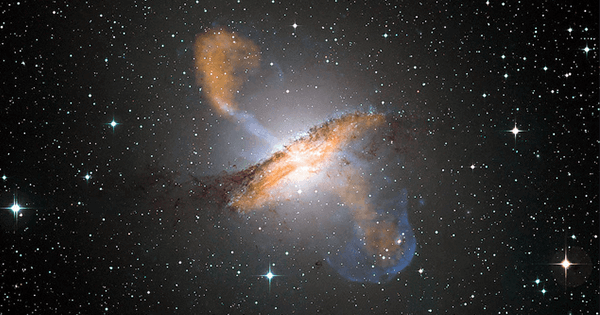Biocentrism Debunked, a philosophical theory which posits that consciousness is the fundamental reality of all things, has attracted considerable attention since its introduction with Robert Lanza’s 2007 work, “Biocentrism: How Life and Consciousness are the keys to a better understanding of the true nature of the Universe.” Biocentrism advocates claim that the physics we know is not sufficient to explain consciousness, suggesting that consciousness influences reality.
In spite of its intriguing assertions, biocentrism has been subject to severe scrutiny and criticism from a variety of sources. This article by Spurs express will dive into the fundamental tenets of Biocentrism Debunked and explore the motives for its debunking analyze the implications for environmental protection as well as examine the flaws in its argument, and then examine the credibility of the claims of the people who promote it.
Summary: Biocentrism Debunked?
In the end, although biocentrism offers a stimulating viewpoint on reality’s nature however, it is unable to stand up to the scrutiny of scientific inquiry. Without empirical evidence and rooted in subjective interpretations of reality, biocentrism is still a philosophical speculative theory instead of a valid scientific basis. Furthermore its anthropocentric bias as well as contradictions in logic limit its potential contributions to environmentalalism as well as our knowledge of what the universe is. In this way, the disproving of biocentrism highlights the importance of separating the realm of philosophical speculative speculation as well as empirically based research in order to discover the mysteries of life.

What exactly is Biocentrism?
Biocentrism is a paradigm change in the way we view the universe. It asserts that consciousness predates and shapes our physical universe. In this theory consciousness is not simply a result of brain activity but is the fundamental basis of reality itself. Lanza believes that the conventional theories of science do not provide a clear picture of the roots of consciousness, leading to a paradigm shift toward the view that consciousness is the main component that makes up the entire universe.
Why do People Biocentrism Debunked?
Biocentrism opponents raise many compelling arguments in support of its credibility. They argue that the theory does not have any empirical evidence to support its assertions. Although Biocentrism Debunked provides an argument for philosophy however, it is not able to giving concrete evidence from science to back up its claims. Furthermore, biocentrism advocates frequently interpret quantum mechanics in a way that does not be in line with their beliefs and result in a misinterpretation of the scientific principles.
The second argument is they believe that Biocentrism Debunked veers into the realm of pseudoscience because it emphasizes personal experiences above objective evidence. Science relies on rigorous research and empirical proof while biocentrism rely on anecdotal evidence as well as subjective interpretations, thereby reducing its scientific credibility. theory.
In addition, critics draw attention to the anthropocentric nature of biocentrism that elevates the human mind over other types of life. By focusing on the importance of consciousness of humans, biocentrism fails to recognize the interconnectedness among all living creatures and perpetuates a hierarchy of the world.
Does Biocentrism Help to promote Environmentalism?
One of the most lauded advantages of biocentrism is its potential to encourage environmental stewardship through highlighting the inherent value of all living things. They argue that acknowledging the interconnectedness of consciousness promotes the development of a more sustainable and compassionate method of conservation. But, critics argue that Biocentrism Debunked the anthropocentric nature of it undermines its environmentalist stance. In focusing on human consciousness and the reduction of others life forms a second rate status, biocentrism fails acknowledge the intrinsic value of non-human life forms and ecosystems.

Biocentrism’s Loopholes:
Despite its controversial claims, Biocentrism Debunked grapples with many inherent flaws that compromise it as a full theory of the world. In the first place it is that the theory is criticized for its inability to be tested and falsifiability. These are the primary criteria for scientific credibility. In the absence of the ability to put its assertions to scrutiny by empirical evidence biocentrism is a speculative theory that remains unproven.
In addition, Biocentrism Debunked reliance on the subjective interpretations of philosophers and philosophical thoughts often results in the existence of logical contradictions and inconsistencies. The theory attempts with its idealistic conceptions about consciousness and the real physical world which raises questions regarding its coherence as well as internal coherence.
Questions: Biocentrism Debunked
Biocentrism: What exactly is it and what is its distinction from other theories of philosophy?
Biocentrism is an interdisciplinary theory which posits that consciousness is the core nature of all things and the physical universe being the product of consciousness. In contrast to other theories that emphasize materialism and physical laws biocentrism argues for the supremacy of consciousness in shaping the world.
Who came up with Biocentrism Debunked and when did it first appear?
Biocentrism was first presented in the late 1970s by Robert Lanza in his 2007 book, “Biocentrism: How Life and Consciousness Are the Keys to Understanding the nature of the Universe.” Lanza is a well-known scientist, formulated the theory as an unorthodox departure from conventional theories of science.
What is the major criticisms against Biocentrism Debunked?
Biocentrism opponents raise a variety of important objections, such as its insufficient empirical proof and reliance on interpretations based on subjective opinions and anthropocentric bias. They assert that biocentrism does not meet to meet the standards for scientific legitimacy and fails to recognize the interconnectedness between all living forms.
Does biocentrism promote environmentalism?
Biocentrism advocates argue that its focus on the value of consciousness as a whole can help in fostering sustainable environmental management by promoting an empathetic and sustainable way of looking at nature. However, critics claim that the anthropocentric nature of biocentrism undermines its environmentalist message.
What loopholes are there that could be exploited Biocentrism Debunked?
Biocentrism is subject to criticism due to its inability to be tested and falsifiability, aswell being based on a subjective interpretation and philosophical reflections. Furthermore the theory is unable to reconcile its idealistic conceptions of consciousness with actual phenomena, which leads to the existence of logical contradictions.
How does biocentrism stack up with other theories of reality and consciousness?
Biocentrism differs from conventional materialistic beliefs that place consciousness as an innate property in physical phenomena. It has a few similarities to ideaslism, which affirms the supremacy of mind or consciousness as the ultimate source of all knowledge but is different in its focus on biology and the life.
Is biocentrism regarded as a scientifically sound theory?
Although biocentrism has intriguing concepts concerning the nature of truth, it is devoid of any empirical evidence and is criticized due to its speculative nature as well as an anthropocentric bias. Therefore, it is not widely accepted as a reliable theory in the scientific community.
Does Biocentrism Debunked contribute to our understanding of the universe and consciousness?
While biocentrism might offer different theories about reality and consciousness However, its speculative nature as well as absence of evidence-based support limits its impact on research. It could, however, stimulate further philosophical inquiry and debate on these important questions.
Conclusion:
Biocentrism and its claim it is the most fundamental existence of the universe is a challenge to the conventional frameworks of scientific thinking. But, its bold assertions are met with suspicion in the community of scientists. Although Biocentrism Debunked offers a novel approach to how reality works, the absence of evidence from the empirical as well as anthropocentric biases and inconsistent logic undermine its credibility as a complete theory. See here on Realm Scans.
As we continue to investigate questions about consciousness, the cosmos and our universe it’s important to examine these theories with an open mind, distinguishing the difference between philosophical speculations and valid scientific investigation. To gain a better knowledge, skepticism and examination are essential tools to distinguish between speculative speculation and real insight into the inner workings of the cosmos.



